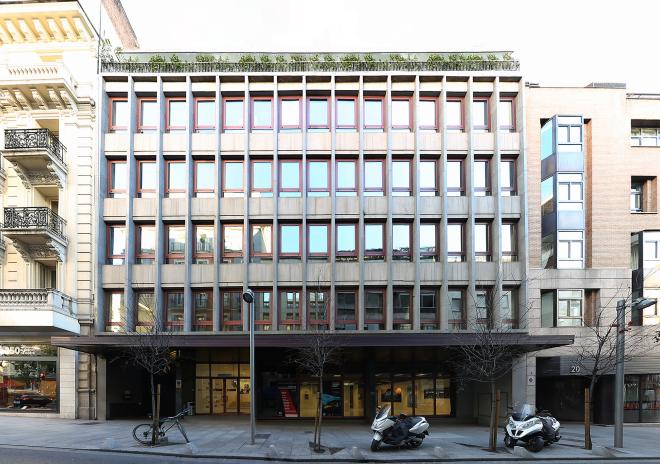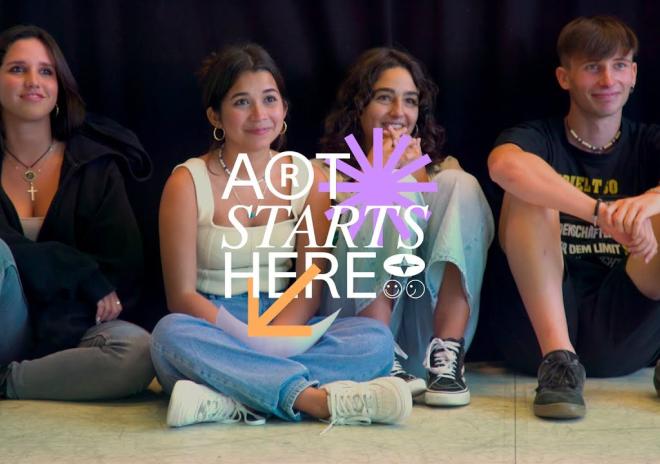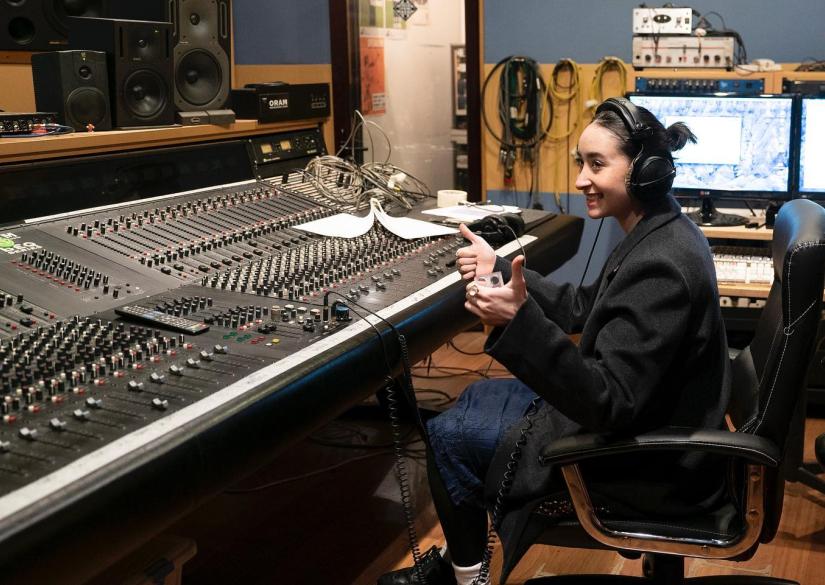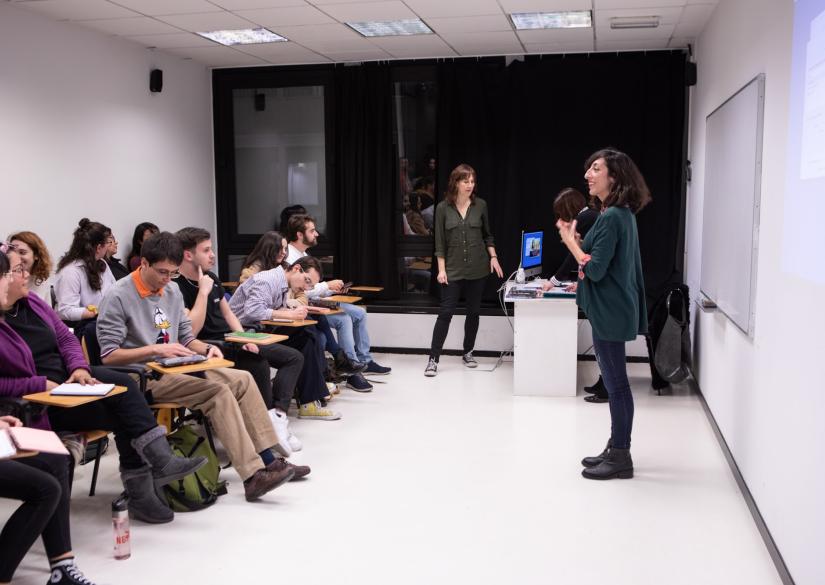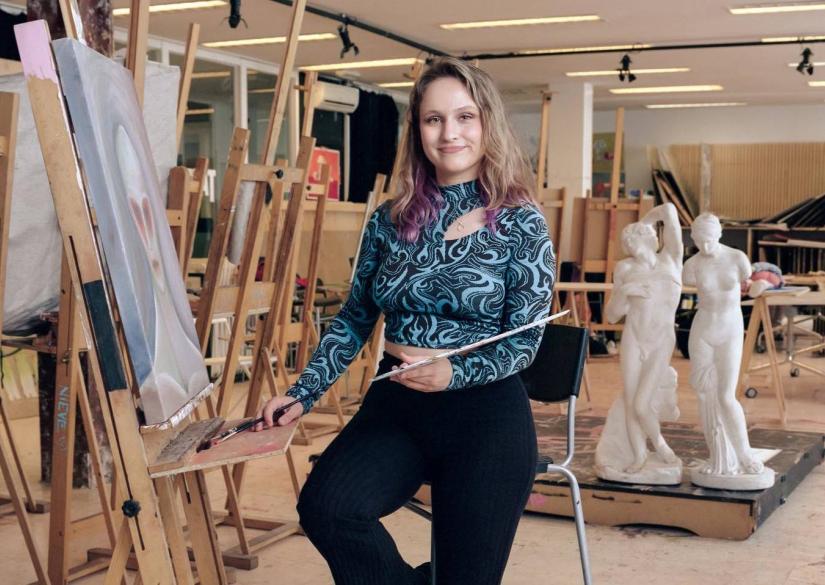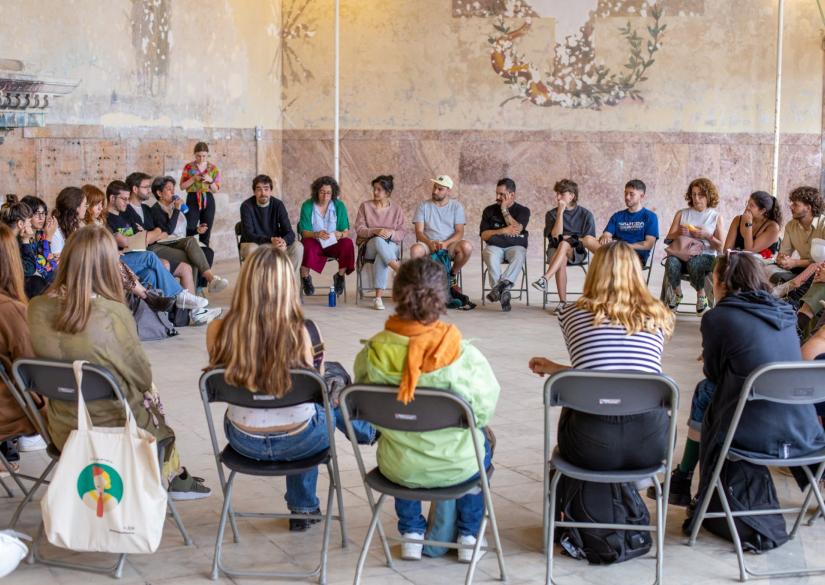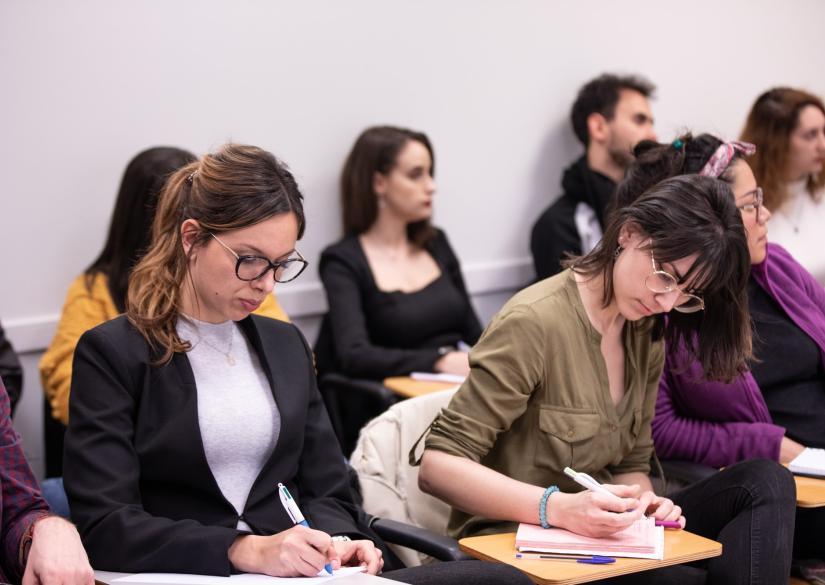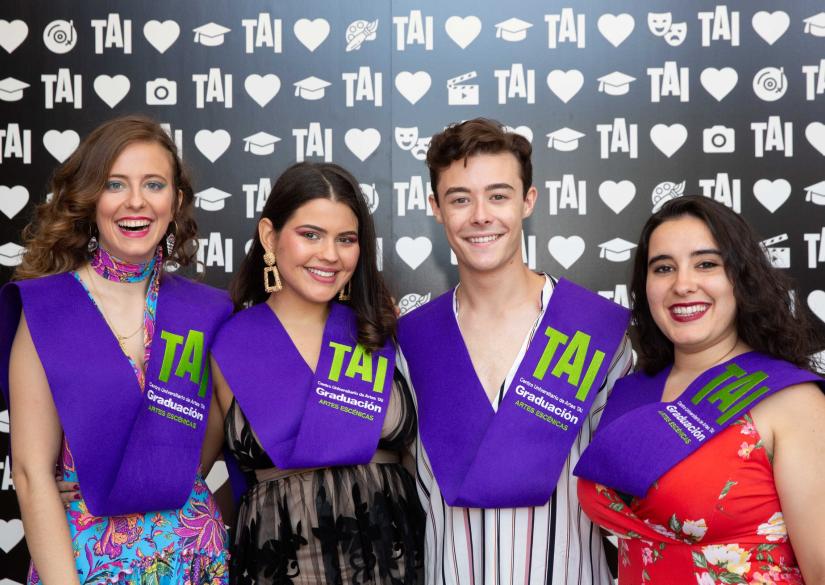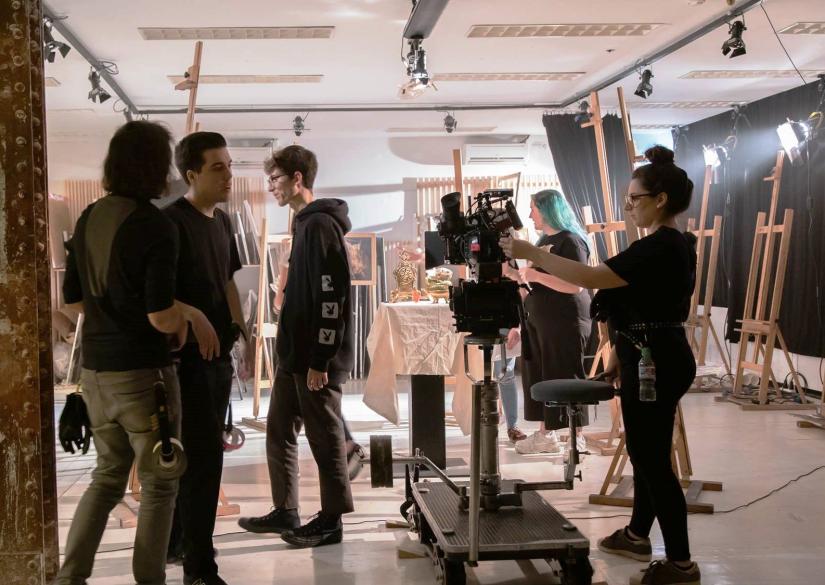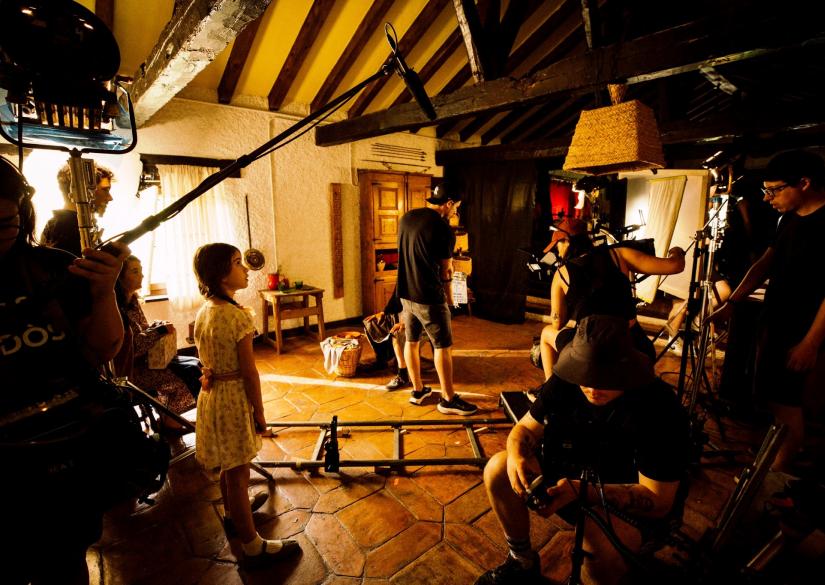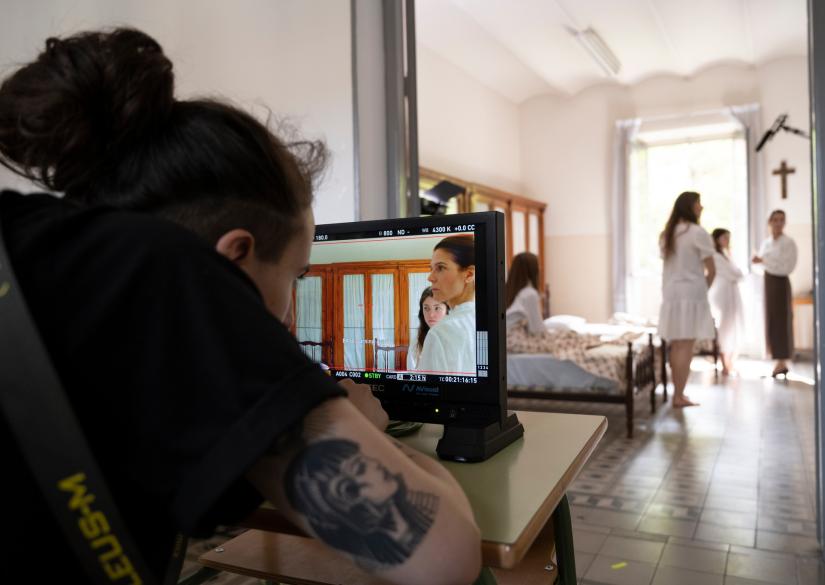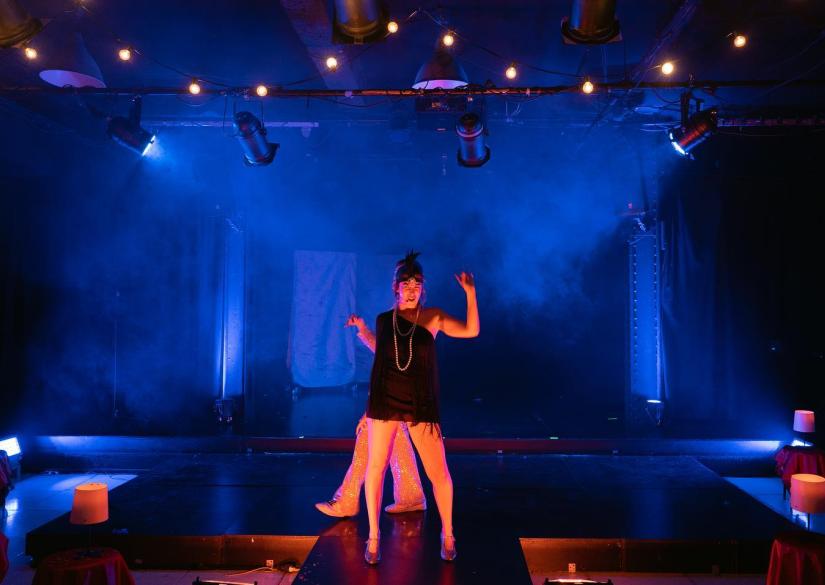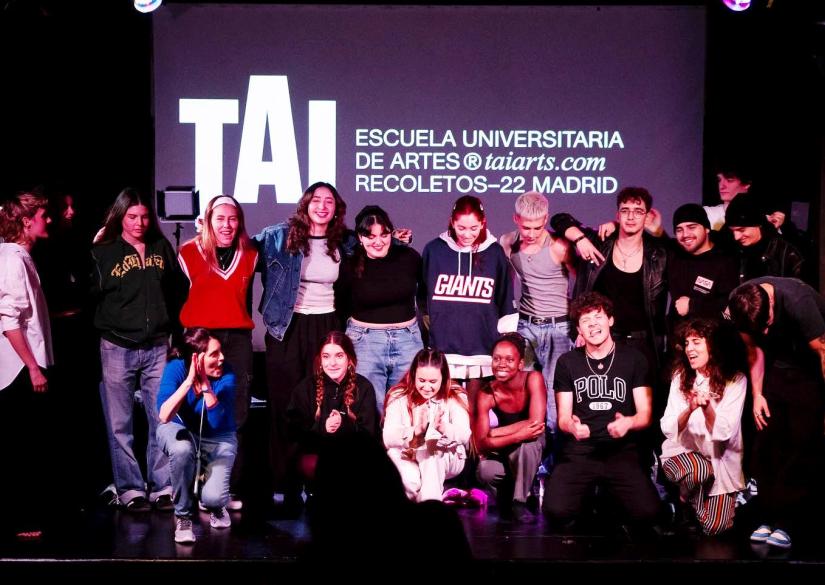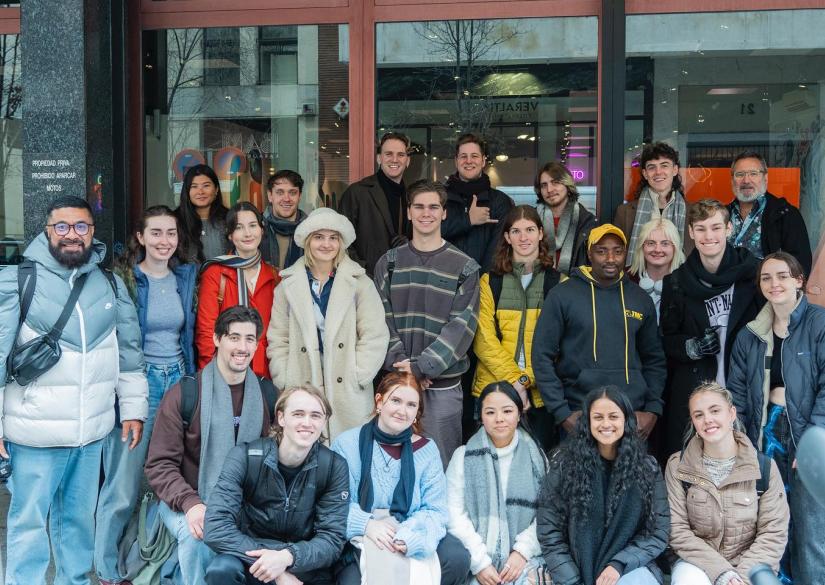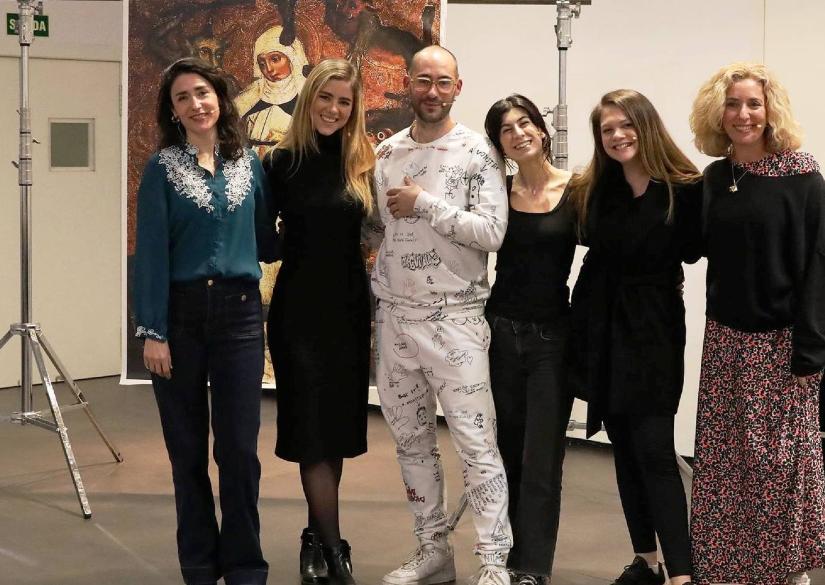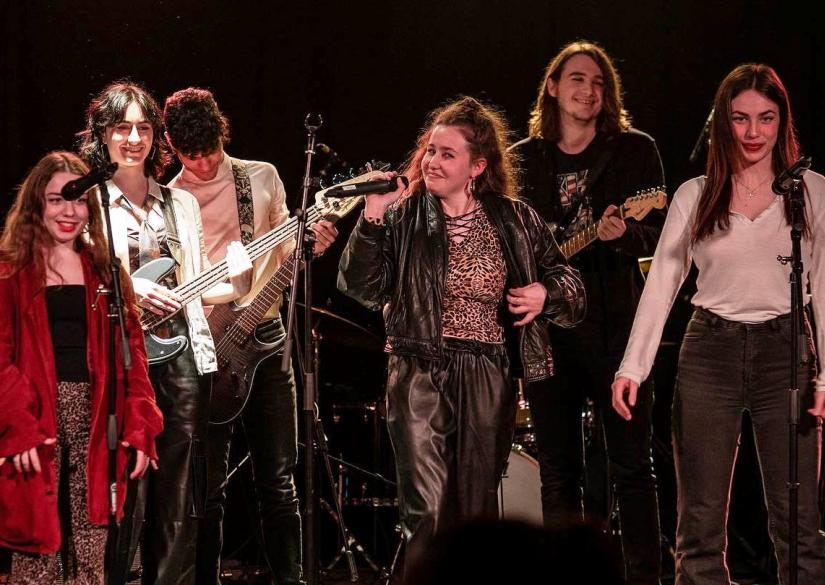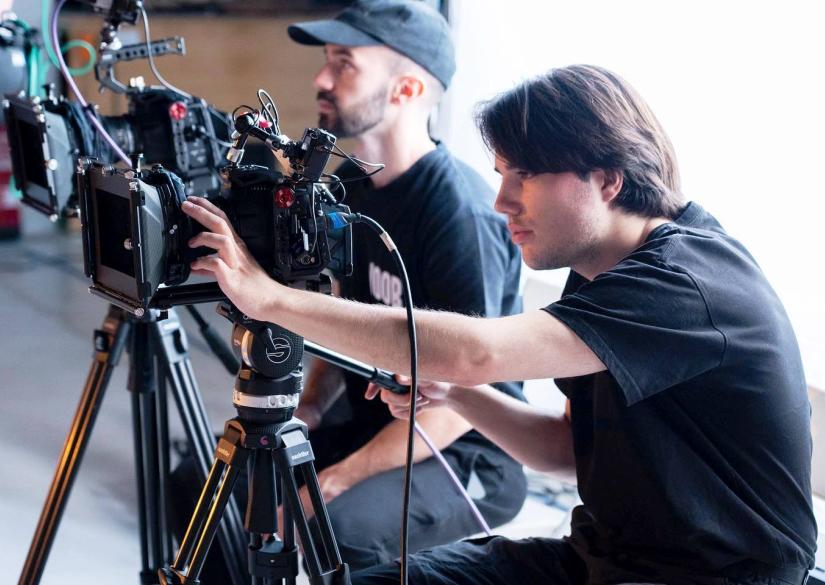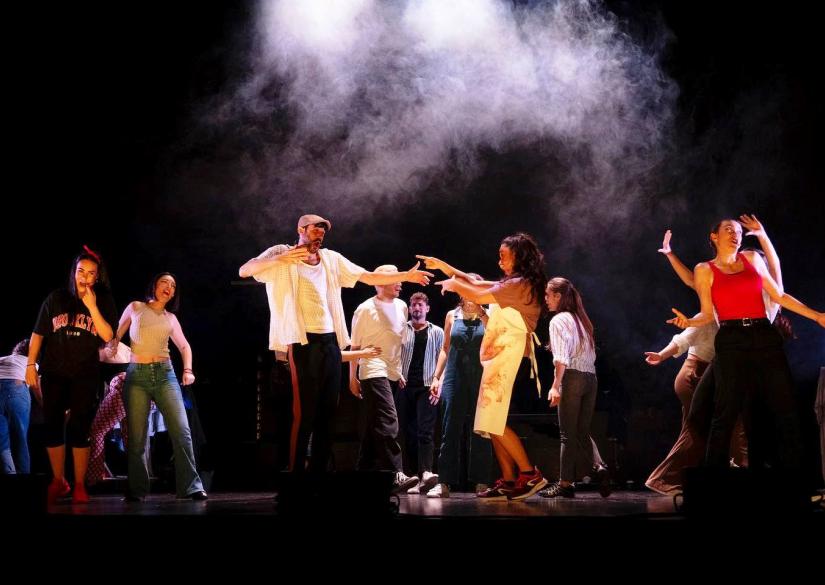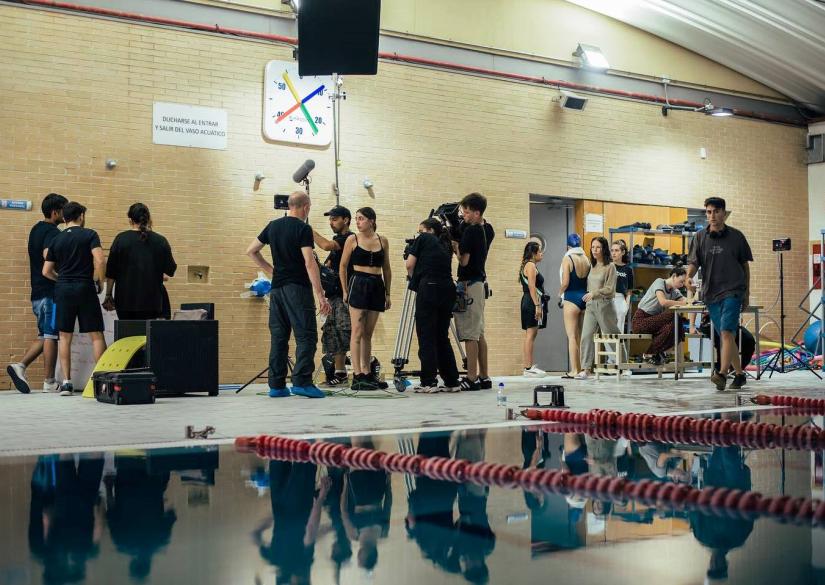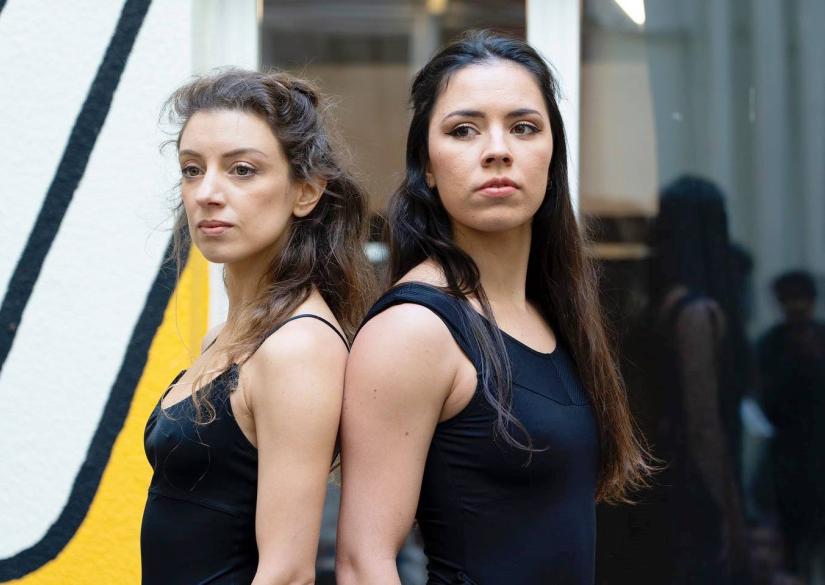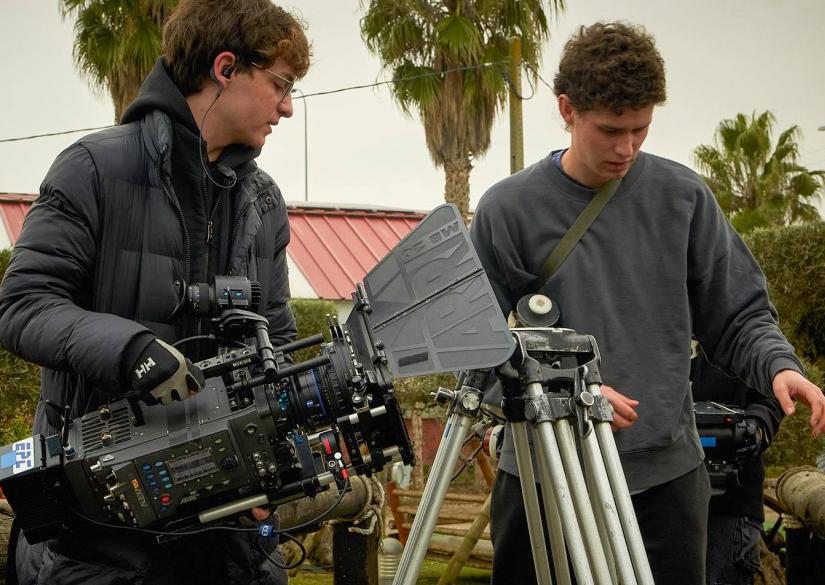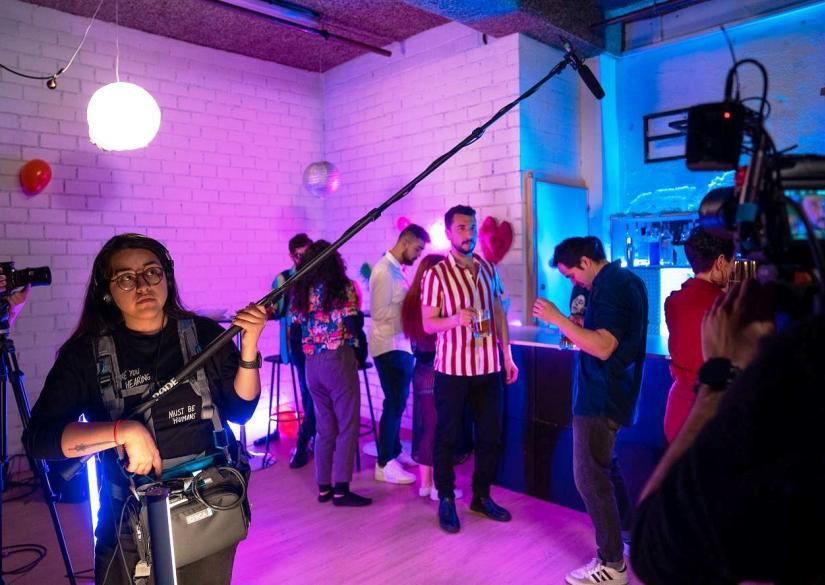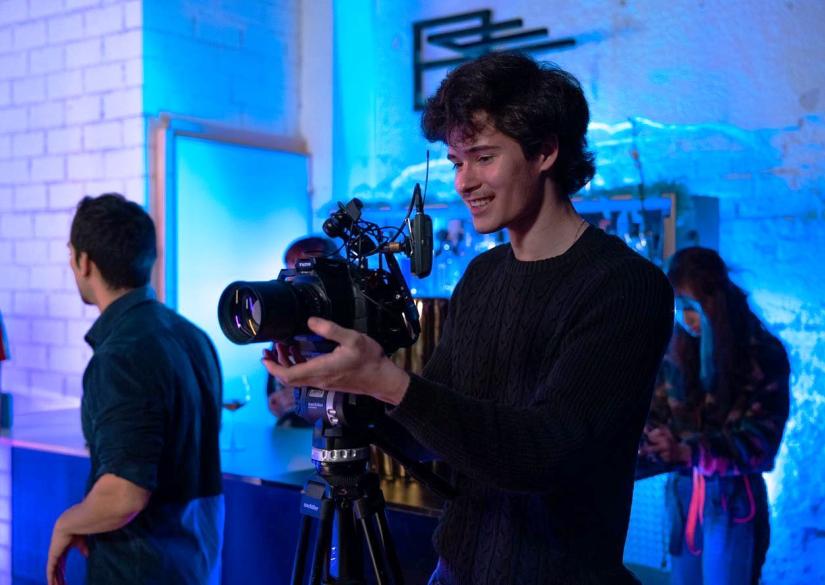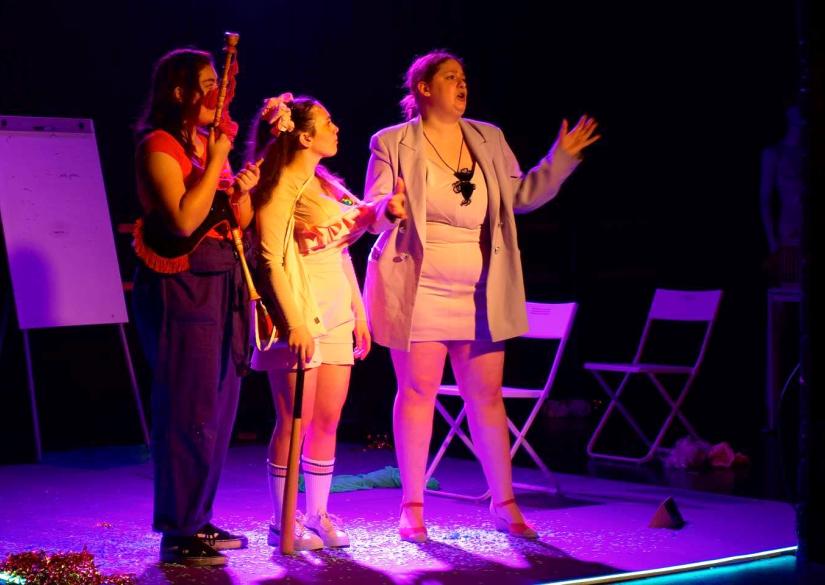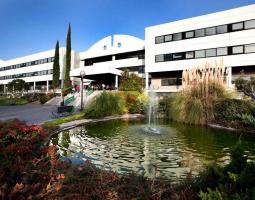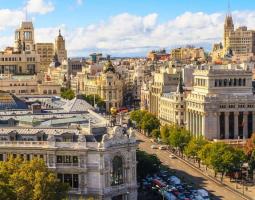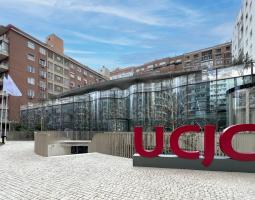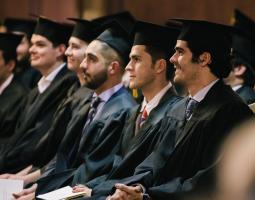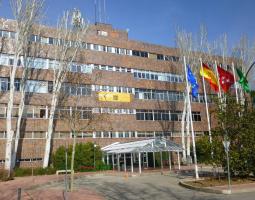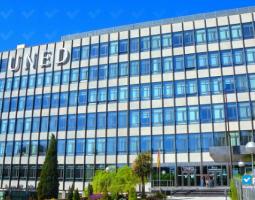Escuela Universitaria de Artes TAI, TAI University School of Arts
Programs and prices, tuition fees in Escuela Universitaria de Artes TAI, TAI University School of Arts
Bachelor's Programs
- Age — from 18 years old,
- The duration of the study is four years.
Undergraduate programs at TAI University's School of the Arts are conducted in two languages: Spanish and English. The training will take about four years of regular attendance at classes, practice in studios and off-campus.
Fewer programs are taught in English:
- Filmmaking
- Performing Arts, Acting,
- Musical composition.
Bachelor's Programs
- Age — from 18 years old,
- The duration of the study is four years.
Undergraduate programs at TAI University's School of the Arts are conducted in two languages: Spanish and English. The training will take about four years of regular attendance at classes, practice in studios and off-campus.
Available Undergraduate Profiles in Spanish:
- Filmmaking
- Musical composition,
- Cinematography, translation,
- Fine Arts, Digital & 3D Design,
- Performing Arts, Interpretation,
- Film: Photography, Camera,
- Film: screenplay, direction,
- Film: post-production, sound creation,
- Photography, audiovisual art.
Master's Programs
- Age — from 21 years old,
- The duration of the training is two years.
Master's degrees provide students with a more in-depth understanding of their chosen specialty, the development of professional skills.
Only one degree is taught in English , Screen Acting.
Master's Programs
- Age — from 21 years old,
- The duration of the training is two years.
Master's degrees provide students with a more in-depth understanding of their chosen specialty, the development of professional skills.
Some of the programs taught in Spanish are:
- Audiovisual, 3D animation,
- Art, documentary photography,
- On-screen action,
- Music Production,
- Editing, color for movies, TV shows,
- Screenwriting,
- Musical Theatre,
- Directing of film, television,
- Post-Production, Visual Effects,
- Intellectual property.
Diploma Programs
- Age — from 18 years old,
- The duration of the training is two years.
Diploma programmes are intensive courses focused on applied skills and employment at the end of their studies. Graduates receive a job offer before the end of the last year of the educational process.
All diploma courses are taught in Spanish:
- Creation, production of music,
- Fashion, costume design,
- Filmmaking
- Digital, 3D illustration,
- Acting on stage, screen,
- Digital content creation.
Summer Programs
- Age — from 18 years old,
- Dates: July,
- The duration of the training is 45 hours.
The Summer School at TAI University offers two-week intensive courses in film and series, animation and post-production, visual and performing arts, music and sound.
Over the course of 45 hours of academic study, students acquire professional abilities, learn how to use specialized equipment, develop creative skills and broaden their horizons by creating personal projects that will enrich their portfolio.
Courses are held in July on campus:
- Short films,
- Character Creation,
- ARRI,
- Game Design,
- Enforcement proceedings,
- Video art,
- Creative Writing, Art Criticism,
- Artificial intelligence
- Content creation,
- Introduction to Music Production,
- Introduction to Interpreting.
The training ends with a large-scale individual project, on which the student works in collaboration with a personal mentor and experienced teachers.
Description of Escuela Universitaria de Artes TAI, TAI University School of Arts
- Location: Madrid, Spain,
- Language of instruction: English, Spanish,
- Type of study: blended.
Escuela Universitaria de Artes TAI is an art school at TAI University that offers high-quality higher education programs at the undergraduate and graduate levels, as well as short-term summer courses.
The institution is focused on comprehensive and applied education of local, foreign students who want to develop their abilities in the fields of art: visual, dramatic, musical, film production and others. The school contributes to the continuous improvement of teaching activities, constantly working to comply with quality standards and accreditation, to improve educational programs based on the latest needs and skills in demand by the industry.
The number of specialized educators exceeds 300 active professionals who are experienced professionals with extensive artistic and academic careers. The teaching staff accompanies students in the process of their maturation and the disclosure of their creative identity. Dozens of specialized areas have been created on campus for each direction, there is high-quality equipment and all the necessary tools to successfully achieve goals.
Educational process
TAI's innovative methodology creates a unique experience for each student, where projects are the central axis of learning. Future artists, specialists in the fields of art learn by practicing in various professions in their discipline.
Content and subjects are not seen as isolated from each other – instead, they are linked to each other with the aim of developing competencies and skills needed in the labour market. This is an experiential type of learning that is always conducted by specialist teachers who are not only active professionals but also bring the realities of the industry into classroom practice.
Over the course of several years of study, students spend more than 2,500 hours in photography studios, 400 hours in workshops, and participate in more than 2,000 hours of art internships with personal mentors.
Faculties and colleges
The educational institution has specialized departments focused on the transfer of knowledge to students in the following specialties:
- Performing Arts,
- Filmmaking
- Post-production stage,
- Music, sound,
- Fine Arts.
The school has two faculties:
- Visual Arts, Digital Creativity,
- Cinematography, new media.
Scientific achievements
The institution's research group is a team of doctoral and postgraduate students who combine teaching, research, and practice in the field of art: they delve into new trends, introduce the latest technological developments into programs, and offer creative solutions that determine artistic and social progress.
Accommodation, meals, prices
The educational institution offers its pupils comfortable accommodation in a modern residence, which is located seven minutes from the educational buildings and Retiro Park. The residential building has several types of rooms with different levels of amenities, most of them are equipped with a shared bathroom:
- Triple rooms,
- Triple, double, single rooms in a shared apartment,
- Double rooms "Standard" and "Plus" of different sizes.
A private bathroom is only available in the single rooms of the special category.
All residents have in common the following facilities:
- Classrooms are a suitable place to study or work, whether alone or in small groups. The classrooms are equipped with everything you need: large tables, comfortable chairs, cable Internet, Wi-Fi,
- Kitchens are common spaces that can be used daily as many times as needed. Fully equipped, they include refrigerators, dishwashers, freezers, microwaves, ovens, kitchen utensils, utensils, storage and recycling spaces,
- The dining room is a functional and comfortable room designed to facilitate communication between residents during meals,
- TV, lounge – equipped with a projector, sofas, a seating area and games,
- Restaurant-cafeteria – located at the headquarters of TAI, in the cultural center of Madrid, with several multifunctional dining rooms with a stage, computer and sound system.
Proper nutrition is essential for physical and mental performance, which is why Cabaret Café offers a varied menu of fresh products throughout the day, with the option of a takeaway dinner, from Monday to Friday.
The price includes:
- Weekly cleaning of rooms, common areas,
- Weekly change of bed linen, towels,
- Launderette
- Reception, round-the-clock security with CCTV cameras,
- 5G fiber optic Wi-Fi,
- Digital platforms HBO, Netflix, Apple TV, Amazon Prime, Movistar, and more.
Activities Escuela Universitaria de Artes TAI, TAI University School of Arts
There are dozens of specialized student clubs on the school's campus — each community helps students find like-minded people and develop their interests in a comfortable and friendly environment.
Some of the clubs by destination are:
- Chorus
- A space for variety,
- Cinema Club,
- Cabaret
- Photo club.
Student communities hold not only local meetings, but also successfully participate in external competitions, get acquainted with representatives of the art industry, and show their talent to a wide audience.
Another exciting part of the extracurricular activities of students is the participation of invited speakers in seminars and master classes. More recently, such famous personalities as David Lynch, David Fincher, Mona Kuhn, Guillermo Navarro, Catherine Opie and others visited the campus with interesting lectures.
Advantages
- An active student and teaching community from more than 30 countries around the world,
- More than 50 years of excellent educational results for local and international students,
- Learning not only in the classroom, but also outside them with the help of master classes, concerts, performances by internationally renowned experts,
- Extensive partner network with educational institutions around the world,
- Exchange programs with more than 70 universities,
- More than 140 projects of students are presented at international festivals.
Facilities and equipment at Escuela Universitaria de Artes TAI, TAI University School of Arts
The school of art occupies an area of 10,000 square meters in the heart of Madrid. Avant-garde spaces, state-of-the-art equipment and software, a variety of rooms with sets of specialized materials and much more await students who are in love with art.
Some of the academic facilities are:
- A soundproofed area of 1000 sq. m. for cinema and photography, equipped with a red camera and a complex lighting system,
- Area of 1000 sq. m. with soundproofing sets, with cyclorama, dressing rooms, darkened room,
- Photo studio prepared for high-quality photo and video work,
- Room for filming, audiovisual practices,
- A multifunctional hall that allows you to hold all kinds of art exhibitions, concerts, theatrical performances or stage performances. The hall has a projector, sound systems, microphones, mixing tables, speakers,
- Painting and sculpture workshop is designed for the development of art projects,
- Analogue laboratory with a set of technologies for research, printing and film development,
- A versatile photo lab adapted for various purposes, creative processes: here students can scan any format, print professionally on high-quality Epson scanners and printers. In addition, the lab has a Benq calibrated monitor with 98% Adobe RGB,
- Multimedia classrooms for meetings, experiments, interdisciplinary creativity. It has advanced software: Avid, DaVinci, Mistika, Nuke, Adobe Creative, Maya, Cinema 4D, Sibelius, Audacity, ProTools, Ableton Live and many more,
- Halls for rehearsals, music recording – professional studios with a large set of musical instruments, amplifiers, interactive equipment,
- Rehearsal and dance halls are practice rooms that have all the necessary technical equipment for rehearsals. They are soundproofed and equipped with a camera to record rehearsals.
Admission dates and extra charges
The academic year lasts from autumn to mid-summer, the teaching load varies depending on the chosen level of education. Students attend classes on weekdays, rest on weekends, national and international holidays.
An approximate list of additional costs:
- Registration fees,
- Accommodation, meals,
- Some extracurricular activities,
- Some personal learning materials,
- Pocket money.
Enrolment process
The registration procedure for the programs goes through several stages:
- Choosing a course, clarifying entry criteria, deadlines,
- Submission of the application, required documents,
- Payment of registration fees,
- Receiving an official response from the Admissions Committee,
- Passing the interview,
- Receiving a letter of readiness for enrollment,
- Tuition fees,
- Arrival at the campus and start of classes.
Perspectives
To date, the School of Arts has graduated from the educational process of more than 20,000 specialists who are employed in their specialty in leading national and international companies.
According to statistics:
- 84.36% of employment among graduates,
- 82.86% find a job within a year of graduation,
- 45% of graduates have implemented their own projects.
Entry requirements, how to apply, what is required to enrol
Overseas applicants seeking admission to TAI University's School of the Arts must provide:
- Personal documents: passport, health insurance, visa or residence permit,
- Diploma of the previous level of education: high school diploma or bachelor's degree, assessment certificates and results of final examinations,
- Portfolio of works for most specialties.
An important aspect is a good knowledge of English or Spanish – at the B2 and C2 levels respectively.
Scholarships Escuela Universitaria de Artes TAI, TAI University School of Arts
The institution supports the creative endeavors of its students with an extensive list of scholarship programs and grants. The awards cover up to 30% of the tuition fee per year, and in general, the scholarship fund is more than €1,000,000 annually.
Institution on the map
Residence permits, citizenship and other services
- Guardianship services during the studies
- Student supervision
Review about Escuela Universitaria de Artes TAI, TAI University School of Arts
Recommendations on when to apply
| Language courses, schools and children's language camps | Primary and secondary education - private schools | Preparation programmes for entering universities - higher education | Higher education (after completing accredited programs A-level, IB, High School) - Bachelor, Master, MBA |
| - we recommend to apply 6-9 months before the start of the course (some camps and schools offer discounts for early booking or for lengthy study programs) - there are some very popular and high demand children's camps, where the applications need to be submitted 1 year in advance (in particular Switzerland , Great Britain , USA , Canada , Austria) | - we recommend to apply one year before the start of the training program, - some schools have a specific time frame (September-November - please specify an individual school) - some schools require tests in several stages (UKISET, internal tests of the school: English, mathematics, logics, subjects, interview, some require a personal visit) | - we recommend to apply one year before the start of the program, - for Foundation and Pathway programs, IELTS and TOEFL certificates are usually required, respectively | - recommended submission one year before the start of the program, - the deadline normally closes in January, for TOP HEIs and, as a rule, in March in other universities - for a bachelor, a Foundation or Pathway preparatory program a completed A-level, IB, High School + IELTS / TOEFL are required - for Masters you need a graduated higher education, in some cases you need a pre-Masters program - MBA requires completed higher education, work experience preferably at least 2-3 years, etc. |


